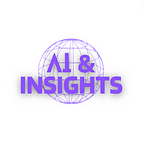StoryLab Academy: Newsgathering in the digital age
The informational demands of today’s audiences are redefining news-gathering and reporting practices. We want to help African journalists adapt.
Digital tools for research, analysis and storytelling are revolutionising journalism, providing news outlets with the opportunity to tell stories more accurately, with better insight and in novel formats that are suited to a mobile-first audience.
Siezing those opportunities, however, isn’t easy. All over the world, journalists are wrestling with the challenges of lack of resources, poor quality training, time constraints and institutional mindsets stuck in the print age. While progress has been made, in many African newsrooms, these problems are especially pronounced.
The StoryLab Academy has been designed to help address these issues. Free for anyone to access, this Mass Open Online Course (MOOC) for digital journalism brings together Code for Africa’s local expertise, Google News Lab’s global training initiative, the World Bank’s rich data and information resources and HacksHackers Africa’s online community of 30,000 news geeks across the continent.
The MOOC provides a set of flexible beginner and advanced level free, self-paced courses which will help African journalists access a range of specialist tracks. As part of a team or as individuals, The StoryLab Academy is enabling and encouraging reporters to learn and gain certifications in a range of skills, from investigative techniques and data journalism, to multimedia storytelling through these core courses.
- News Gathering in the Digital Age
As a journalist living in the digital age, a huge demand falls on you to be up to date with the latest in data gathering and processing skills. This course is tailored to help you do just that. From learning Google apps that can make your investigative work easier to delving deeper into the intricacies of extracting and understanding data, this course will help you become an expert in the latest techniques used in newsgathering.
2. Storytelling
This module provides the skills you need to critically evaluate public service stories and use open data to create data-driven stories backed by credible and accurate visualisations. The unit provides a series of Solution Journalism examples from Africa and across the world where journalists collected, analysed, and reported data-driven evidence to create an impact in public interest. By the end of the course, you will be able to create highly dynamic, interactive and exciting visuals that transcend words and take your audiences to the heart of the story.
3. Audience Engagement
As journalists,we no longer just inform audiences. We engage with them through Facebook, Twitter, Instagram and other social media platforms. Audience engagement is a top priority in newsrooms, and media outlets are investing more resources into providing infrastructure for interaction. This course is tailor-made to guide you through building engaged audiences on your preferred digital platforms.
4. Management and Sustainability
Are you optimising your content for mobile?
This course provides a deep-dive into content management, monetisation and analytics with Accelerated Mobile Pages (AMP), an open-source technology created to maximise mobile viewing speed for Internet content.
For publishers, this unit also shows you how to open new digital revenue streams by optimising your content for a digital audiences.
5. Digital Hygiene: Fake news and digital security
Finding the specific information you need means filtering out what isn’t useful. Adding modifiers to your search is a powerful way to refine your search and get better and faster results. This course, empowers you to master time-saving methods to verify the authenticity and accuracy of content you find on social media and elsewhere online.
This module also provides a vital unit which teaches you how to protect yourself and your news organization from hacking, digital attacks and censorship.
All these lessons will include video explainers, concise tip-sheets and exercises to immediately try out new skills. You will be able to mix and match modules to tailor courses to your most pressing needs especially when on deadlines and in need of a specific tool.
Ready for the Digital revolution in journalism? Register here
Code for Africa (CfA) is the continent’s largest federation of data journalism and civic technology laboratories, with labs in four countries and affiliates in a further six countries. CfA manages the $1m/year innovateAFRICA.fund and $500,000/year impactAFRICA.fund, as well as key digital democracy resources such as the openAFRICA.net data portal and the GotToVote.cc election toolkit. CfA’s labs also incubate a series of trendsetting initiatives, including the PesaCheck fact-checking initiative in East Africa, the continental africanDRONEnetwork, and the African Network of Centres for Investigative Reporting (ANCIR) that spearheaded Panama Papers probes across the continent.CfA is an initiative of the International Center for Journalists (ICFJ).
Google News Lab empowers the creation of media that improves people’s lives. It’s mission is to collaborate with journalists and entrepreneurs everywhere to build the future of media with Google. It does this through product partnerships, media trainings, and programs that foster the development of the news industry as a whole. Google began its support for digital and data journalism in Africa in 2010 through intensive workshops and continues to offer newsroom-targeted trainings. It also supported innovateAFRICA’s predecessor, the African News Innovation Challenge, in 2012.
The World Bank Global Media Development Programme helps the media leverage digital technologies to strengthen its role as a driver of good governance. In Africa, this has included support for data-driven journalism training starting in 2011, as part of efforts to improve the media’s analytical capacity. The World Bank also works with African governments to help make data for decisionmaking on development and economic issues more easily available to citizens and the media. The World Bank’s support has included co-funding for the SudanData.orgto build statistical capacity and data literacy amongst journalists, as well as support for the HURUmap initiative to make census and demographic data more easily available to African newsrooms.
